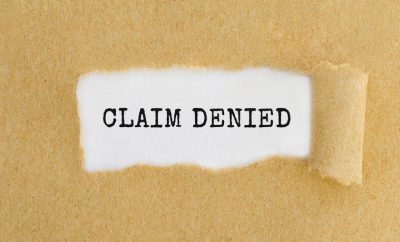Filing for Disability? Seek Appropriate Medical Treatment

As attorneys specializing in Social Security Disability claims, we know that a variety of situations can lead to an initial denial of benefits. Sometimes, claimants make the mistake of failing to follow doctor’s orders with regard to medications or treatments. Unfortunately this can lead to a denied claim, and complicate the case.
The reason for this is fairly simple, even if stating it sounds overly blunt: Social Security’s case reviewers might not believe your condition is serious if you don’t appear to be taking special care to seek medical treatment for it. Also, without treatment or medication, Social Security can’t judge whether your condition could theoretically improve; therefore, your condition might not meet their standard of disabling for at least a year or more.
Of course, we know that there can be obstacles to overcome when seeking medical care. One of the most common situations is a person who doesn’t have health insurance, and can’t afford to self-pay for medical services. This individual might have a weak medical record, or none at all, to supply to Social Security’s examiners. Yet they could certainly be suffering a very real, disabling condition. The examiners do realize this fact as well.
Consultative exams. Social Security will likely schedule a consultative exam for you, if they feel that medical evidence for your claim is lacking. However, these exams are usually brief, and often do not supply adequate proof to back up your claim. These doctors contract with Social Security, and much of their job is to state whether or not they believe you can work. This can be difficult to ascertain without more comprehensive testing and knowledge of your background. Cases are seldom approved on the basis of the consultative exam alone.
Taking action. Prior to filing for disability (or during the appeal process, if you have been denied) it will become important to supply some medical evidence for your condition. Community free clinics or emergency rooms can be helpful. Obviously, in the best case scenario you would establish an ongoing relationship with a physician who can thoroughly test and diagnose you, and who can issue a more detailed opinion on your condition.
Residual functional capacity form. When completed by your treating physician, this form will adequately describe your abilities and limitations with regard to potential work. It helps disability examiners gain a more thorough understanding of your physical and/or mental condition. While it’s no guarantee of an approval, a residual functional capacity form from your doctor can increase your odds of winning an approval for disability benefits.
And of course, a disability lawyer can help you gather the medical evidence needed to prove your claim. If you have been denied Social Security Disability benefits, give us a call. We can review your case, determine whether insufficient evidence was the cause of your denial, and help you obtain the expert opinions needed to appeal your case.

